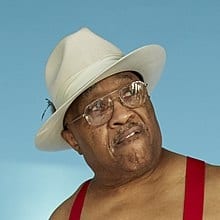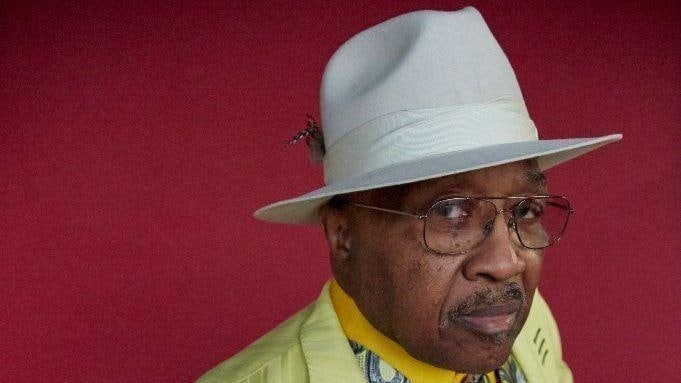I’ve never been to Africa
And it’s your fault
– Swamp Dogg
 In 1970, the black American rhythm and blues singer and songwriter Jerry Williams, originally from Virginia, changed his name to Swamp Dogg. Recalling this transformation, he wrote, ”I wanted to sing about everything and anything and not be pigeonholed by the industry. Since then I have sung about dead flies, Sly Stone, revolution, peace, war, sex and blood transfusions… topics that interest me.”
In 1970, the black American rhythm and blues singer and songwriter Jerry Williams, originally from Virginia, changed his name to Swamp Dogg. Recalling this transformation, he wrote, ”I wanted to sing about everything and anything and not be pigeonholed by the industry. Since then I have sung about dead flies, Sly Stone, revolution, peace, war, sex and blood transfusions… topics that interest me.”
American roots music is probably the closest that one will get to describing Swamp Dogg’s material. There are plenty of original songs that recall the heyday of ‘50s and ‘60s soul shots, there is a healthy dose of rock and roll, and there are hat-doffs to country. But what distinguishes these compositions from most others is that they are the creations of a true outsider. Swamp Dogg hails from a select line of belters, crooners and shouters who wear their individuality on their sleeves. In other words, nutters.
Visiting the Swamp Dogg songbook is a bit like experiencing Ian Dury for the first time (“Knock me over with a feather, Clever Trevor”) or hearing Hank Wangford, the English country twangster (“How long have you been going out with Chico, and when did you run off with him to Puerto Rico”). It recalls characters like Big Jay McNeely, the honker Saxophonist, who would lead his audience out of the pub onto the local bus, then ride up the hill with them and return on the downhill one to the same venue, all without losing track of his enormously long horn solo. Mojo Nixon has the Swamp Dogg gene (“Don Henley must die, stick a sharp stick in his eye”).
Swamp Dogg’s album titles reinforce this. Here’s a sample: I Called for a Rope and They Threw Me a Rock; Finally Caught Up with Myself; Total Destruction of Your Mind; Rat On; Cuffed, Collared & Tagged and Doing a Party Tonight; Surfin’ in Harlem; An Awful Xmas and a Lousy New Year; and The White Man Made Me Do It. Listening to these records is akin to imagining Allan Sherman, Gil Scott-Heron, Louis Prima and Screaming Jay Hawkins getting together in the studio during a busy night of drinking Chinese whiskey (Schenley).
Swamp Dogg is still at it. Last year he released an album entitled Love, Loss and Autotune, featuring the tall sound of Texas blues guitarist Guitar Shorty. And there are reports that he is working with John Prine on a country record. Swamp Dogg is no stranger to country music. He brought out an album of country songs in the 1980s, which included the track He Don’t Like Country Music and He Hates Little Kids. One of the mainstays of his live repertoire is the John Prine number Sam Stone (“There’s a hole in daddy’s arm where all the money goes” – that one).
Once in a blue moon, Swamp Dogg gets up to our neck of the woods. This author saw his show in 1993 at Tramps, with Afrika Bambaataa as the deejay. Sometime around the time of the 2008 economic implosion, he played at the sorely missed Southpaw club in Brooklyn. Both were memorable performances.
To quote from the man himself, “If you’ve got to do it wrong, do it right.” The world needs more Swamp Doggs.
Swamp Dogg will be performing at Le Poisson Rouge on June 14, 2019.










